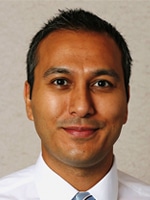Breast cancer biomarkers, classic and new
Like a thriving expat, Deborah Dillon, MD, is comfortable moving within worlds both old and new. Specifically, as a breast and molecular pathologist at Brigham and Women’s Hospital, she appreciates the biomarkers she and her colleagues grew up with, so to speak, as well as those that are part of a more recently arrived-at scenery. Not everyone finds both worlds equally riveting. “A lot of people are much more interested in, and excited by, new markers,” she says. “When I talk to people from pharma, this is what they want to hear about.” So do many pathologists, oncologists, and patients—new markers and new therapies have a way of updating hopes. Dr. Dillon understands the persistent thrill of the new, why people want her to talk the language of PIK3CA, PARP inhibitors, MMR, NTRK fusions, ESR1, and the like. But as an in-demand speaker as well as in a recent interview with CAP TODAY, she also advocates for making the old—the longstanding trinity of ER, PR, and HER2—seem new again.
Scoring HER2 expression across the full spectrum

Dr. Tozbikian
HER2-low breast cancers are now of greater clinical interest, given Enhertu’s recent approval for use in treating such cancers. How to achieve accurate and reproducible results in scoring HER2-low tumors was at the center of a CAP TODAY webinar on new perspectives on the full spectrum of HER2 expression in breast cancer. “I think it may require increased training, increased operator competency, strict adherence to our ASCO/CAP scoring guidelines and criteria, taking more time with our cases, and optimizing our methods—using all our best practices,” said Gary Tozbikian, MD, webinar presenter and associate professor and director, Division of Breast Pathology, Department of Pathology, Ohio State University Wexner Medical Center. (The full webinar, sponsored by Daiichi Sankyo and AstraZeneca, is online at captodayonline.com.)
CAP TODAY Featured Webinar
For a larger presentation of this webinar, click here.
New Perspectives on the Full Spectrum of HER2 Expression in Breast Cancer
Webinar presenter Gary Tozbikian, MD, Associate Professor, Director, Division of Breast Pathology, Department of Pathology, Wexner Medical Center at The Ohio State University, discusses active research exploring the clinical relevance of HER2 across the full spectrum of expression. Moderated by Bob McGonnagle, Publisher, CAP TODAY. This on-demand webinar originally broadcast June 14, 2022.
Close-up on HER2 alterations in advanced NSCLC

Dr. Hirsch
HER2 is a known oncogenic driver and emerging biomarker in non-small cell lung cancer, and while the therapeutic implication is not yet fully known in NSCLC, “we need to pay attention to it,” said Fred R. Hirsch, MD, PhD, executive director of the Mount Sinai Center for Thoracic Oncology and associate director, Tisch Cancer Institute, in a CAP TODAY webinar sponsored by Daiichi-Sankyo and AstraZeneca. The estimated prevalence of a HER2 gene mutation in advanced NSCLC is two to four percent, he said. The prevalence of HER2 gene amplification varies by test method: two to four percent by next-generation sequencing and 10 to 20 percent by FISH. And the prevalence of HER2 protein overexpression by immunohistochemistry varies by study and antibody, he said, and ranges from six percent to 35 percent. NSCLC patients with mutation, amplification, or overexpression are currently in clinical practice treated comparably to patients who have no molecular alteration.
Breast cancer breakthrough sparks HER2 quest
The latest advance in breast cancer treatment is a big one—the promising antibody drug conjugate fam-trastuzumab deruxtecan-nxki, or T-DXd (Enhertu). The drug was granted breakthrough therapy designation this spring for patients with HER2-low metastatic breast cancer, and the drug and trial on which the decision was based were the focus of the plenary session at the ASCO annual meeting in early June. “This drug in particular is a variant of a drug we are all very familiar with—Herceptin, or trastuzumab,” says David Rimm, MD, PhD, the Anthony N. Brady professor of pathology, professor of medicine (oncology), director of the translational pathology and Yale pathology tissue services, and director of the physician scientist training program in pathology, Department of Pathology, Yale University School of Medicine. Also familiar: the IHC test to determine eligibility for the drug, a companion diagnostic developed decades ago.
 CAP TODAY Pathology/Laboratory Medicine/Laboratory Management
CAP TODAY Pathology/Laboratory Medicine/Laboratory Management